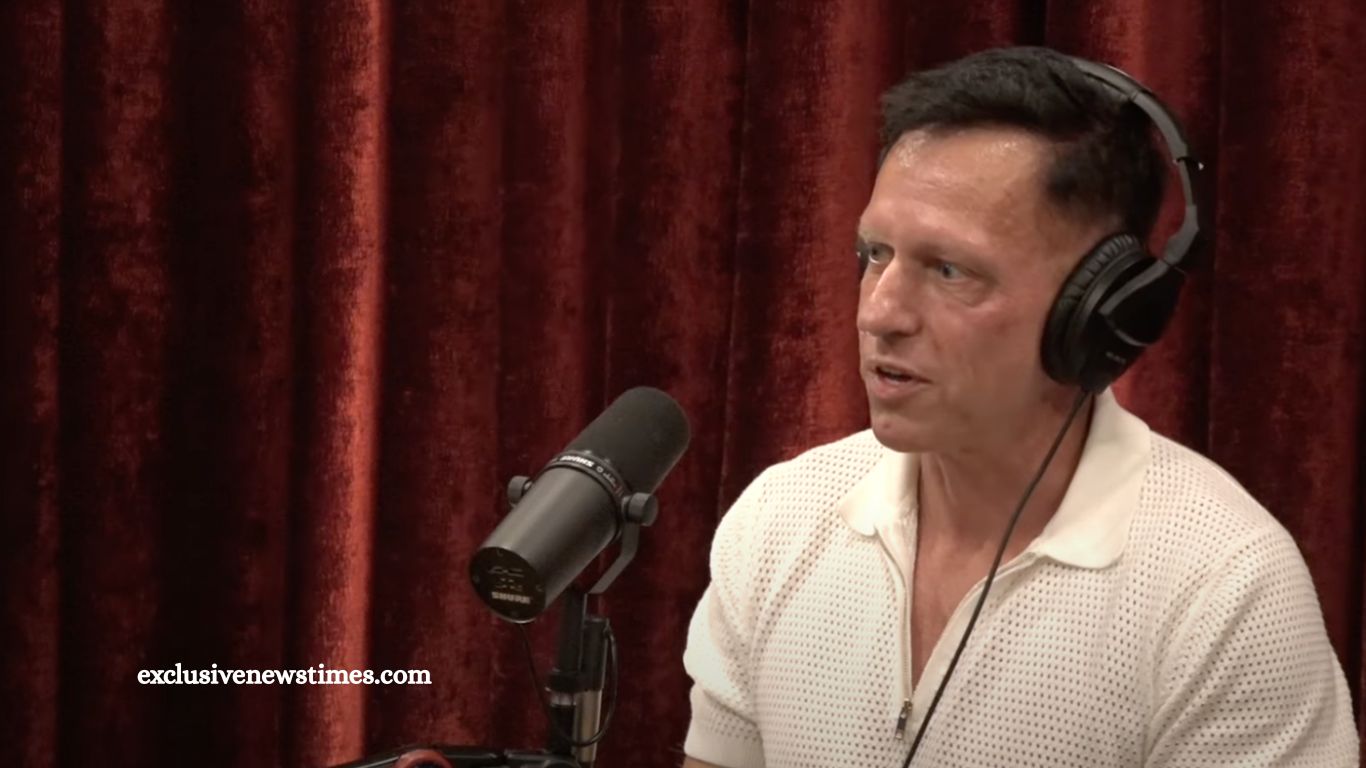Silicon Valley’s Obsession with Reinvention
Tech billionaires have a long-standing tradition of casting themselves as visionary iconoclasts—individuals who challenge institutional norms not through expertise or experience, but through a steadfast belief in their own disruptive genius. Few projects better exemplify this ethos than the Enhanced Games, an alternative Olympic-style competition championed by Peter Thiel and other high-profile investors.
The premise? A sporting event where performance-enhancing drugs are not only allowed but celebrated. But according to a recent exposé by Wired, what began as a radical reimagining of athletic competition may be little more than an elaborate vehicle to sell high-margin supplements.
Read More: How Pamela Anderson’s Effortlessly Cool Style Shaped Her Latest Harper’s Bazaar UK Photo Shoot
From Bold Concept to Chaotic Execution
On the surface, the Enhanced Games appear to be gaining traction. The inaugural event is slated for May 2026 in Las Vegas, and funding has come in from influential backers like Thiel and Donald Trump Jr.’s 1789 Capital. A few athletes have signed on, and public challenges have begun.
One such stunt was a $1 million bounty offered by founder Aron D’Souza to any “enhanced” athlete who could beat world records in the 100-meter or 50-meter freestyle swims. Bulgarian Olympian Kristian Gkolomeev succeeded—but he wasn’t the face originally intended to represent the movement.
The Miscalculation of the Poster Boy
That role was supposed to go to Australian swimmer James Magnussen, who relocated to California to begin an aggressive doping regimen, including testosterone and growth hormone treatments. The results were not as expected.
Magnussen’s gains in muscle mass proved counterproductive. His increased size hindered his performance in the pool, even causing him to tear a high-tech, full-body swimsuit during a trial. Ultimately, he clocked a time 1.2 seconds slower than his personal best—recorded when he was competing clean.
Gkolomeev, who joined later and followed a more moderate doping strategy, fared better. He set a new world record, only to see his performance decline after further exposure to enhancement drugs. Both he and his trainer later admitted that he likely could have achieved similar results without the pharmaceutical assistance.
Shifting Standards and Lowered Expectations
D’Souza, who previously gained notoriety by helping Thiel fund the lawsuit that bankrupted Gawker, appears genuinely committed to the idea of a pharmaceutically-optimized human. His reported frustration with the perceived intellectual mediocrity of International Olympic Committee officials led him to build his own version of the Games.
Yet, the original vision—a doping free-for-all—is already being scaled back. Athletes must now limit themselves to doctor-prescribed substances that are legal in their home countries, and they are subject to health monitoring throughout their training.
The Real Endgame: Selling Supplements
Perhaps the most telling detail in Wired’s report is that alongside the Games, D’Souza has launched Enhanced Performance Products, a line of supplements and sports drinks. The implication is clear: the Enhanced Games may be less about challenging athletic orthodoxy and more about building a marketing engine for lucrative performance products.
In other words, the whole project may be less a revolution in sports than an ambitious—if convoluted—business plan.
Frequently Asked Questions
What are the Enhanced Games?
The Enhanced Games are a proposed alternative to the Olympics that allow and even encourage athletes to use performance-enhancing drugs. Founded by Aron D’Souza and backed by investors like Peter Thiel, the event positions itself as a “science-positive” sporting competition challenging traditional anti-doping rules.
Who is funding the Enhanced Games?
Notable backers include billionaire Peter Thiel and 1789 Capital, an investment firm co-founded by Donald Trump Jr. These investors are known for supporting controversial or contrarian ventures that challenge mainstream institutions.
What did the Wired report reveal?
A recent investigation by Wired uncovered that the Enhanced Games may be less about athletic competition and more about launching a supplement and sports drink business called Enhanced Performance Products. The report suggests the event serves as a high-profile marketing platform for selling enhancement-related products.
Are the Enhanced Games actually happening?
Yes, the first event is reportedly scheduled for May 2026 in Las Vegas. A few athletes have signed on, and promotional activities have already begun—including million-dollar performance challenges and media appearances.
Did any athletes break records using performance enhancers?
Yes. Bulgarian Olympian Kristian Gkolomeev broke a world record in freestyle swimming while participating in an “enhanced” training program. However, his coach later admitted he may have been capable of doing so without the drugs. Australian swimmer James Magnussen, who underwent a more aggressive regimen, failed to outperform his previous clean records.
Is the Enhanced Games concept facing backlash?
Yes. Critics argue the event undermines decades of progress in anti-doping regulation and athlete health. There is also skepticism about the scientific merits and ethics of encouraging drug-enhanced performance, especially when safety protocols are still being established.
Conclusion
The Enhanced Games present a provocative reimagining of elite athletic competition—one that challenges long-standing norms around fairness, safety, and the role of science in sport. Backed by tech and political elites like Peter Thiel and Donald Trump Jr., the initiative promises to celebrate human enhancement rather than suppress it.
Yet beneath the surface, recent investigations suggest a more commercial agenda: the Games may serve primarily as a flashy launchpad for a high-margin supplement empire. With conflicting messages, scientific misfires, and growing scrutiny, the Enhanced Games now stand at a crossroads—caught between the rhetoric of radical innovation and the reality of a well-marketed business venture.


